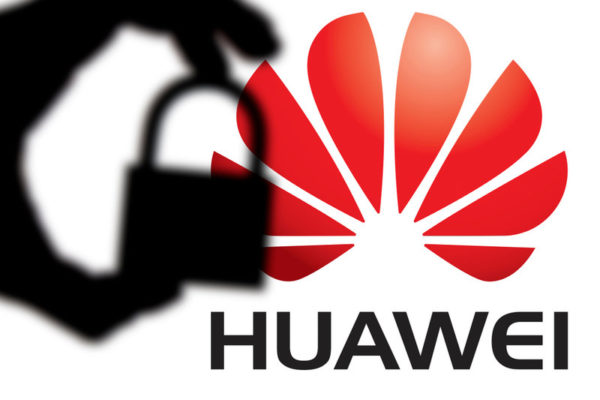Early last month I once again joined Peter Diamandis and some Abundance 360 members on a trip into China. This time the group was a little more personal, with 15 or so of us travelling from Beijing through to Shanghai. Along the way we met with leaders of some of China’s largest technology companies, including venture capital leaders, the head of autonomous cars at Baidu and the C level management of Xiaomi. This blog is a summary of two of my key takeaways from the trip. No longer is China the copycat market it once was. It is now at the forefront of business innovation around the globe. I hope you enjoy the read.

TAKEAWAY 1: THE URGENCY OF THE START-UP COMMUNITY IN CHINA
One of our meetings started with an anecdote that typified the kind of work ethic to be expected in the Chinese start-up community. This was the story of a start-up that, in an attempt to entice young engineers to its ranks, promoted a generous work-life balance. The pitch was a 9-9-6 week. What’s that? It’s a work week of 9am to 9pm, 6 days a week. I’ll be the first to admit that this offer didn’t strike me as all that generous, but when compared to the alternative, it’s a breeze. Commonplace in the Chinese start-up community, according to one of China’s leading Venture Capitalist, is a 9-12-7 week – 9am to 12am, 7 days a week! The VC followed on to say that Chinese students studying in America brought back two insights from their travels; the first, being the brilliance of American creativity, and the second, that American’s don’t work very hard. With work schedules like that, it’s pretty hard to argue with point two.
So how is it that the average Chinese engineer is so motivated? Because this is the first generation in China with true economic and social mobility. The first generation where an individual can go from a have not, to a have. In a country with little religious practice, people find fulfilment and meaning in their pursuit of personal excellence. It is this ambition combined with family expectations that drives the hard-work ethos. The story of BYD, and its founder Wang Chuanfu, embodies this pursuit of excellence. Born into a poor farming family, Wang attended Central South University before earning his master’s degree in Beijing. When he was just 29 years old, he founded BYD, which went on to become the world’s leading small battery company. As Charlie Munger describes, he’s the “son of a peasant who did it all himself”.
The Chinese market is a highly competitive one. Any new innovation in the market springs forth an army of competing businesses in its wake. In an attempt to attract and retain healthy user bases, Chinese entrepreneurs are inverting traditional business models. E-commerce giant, Xiaomi, presents such a case. Xiaomi is the seventh largest seller of smartphones globally – pretty impressive for a company that was started only seven years ago! Xiaomi produces only a handful of products, including smartphones, TVs and routers. Interestingly, these products are sold at cost of materials, with barely any mark-up. Xiaomi even built its own extensive retail network to reduce costs, passing on the margin to its customers. The core of the model is to create a platform for which it can sell over-the-top internet services. These apps (social messaging, mapping, mobile games etc.) entertain millions of users on the Xiaomi platform, waiting to be monetised. As a general rule of thumb, a 10 million daily active user app will achieve a $1 billion valuation. Xiaomi already has 40 apps with over 10 million daily active users!
We sat down with the CEO of a fascinating AI company, Face++. Face++ is the world’s largest facial recognition service, serving developers in more than 150 countries. The company ranked number 11 in MIT’s list of smartest companies of 2017. Face++ presents an enlightening illustration of the advantage AI developers in China have over their competitors in the US. There are two components to the company’s competitive advantage: its hardware, which includes a combination of sensors and cameras, and the enormous, high quality, data set this hardware generates. Face++ has access to over 400 million cameras across the globe! A large portion of these cameras are located in public areas across China (subway stations and the like), and are accompanied by sensors to increase the quality of data collected. It is important to remember that data is the essential input for machine learning algorithms; the company with the stronger data set will likely end up with the more competent AI. This kind of access to data is only possible in China, where there isn’t the same cultural resistance to invasions of privacy found in Western countries. Of the 400 million cameras at Face++’s disposal, over half are smartphone cameras, with real user information annotating the data. This smartphone data is mostly sourced from customers. Companies like Uber use Face++’s facial recognition services to confirm the identity of their drivers, increasing passenger safety by ensuring only registered drivers are using the app. Face++’s smartphone data base is growing by an incredible 20 percent each month!
We also met with the head of autonomous cars at Baidu, who explained where they envision the autonomous vehicle model is heading. Baidu’s driverless project Apollo, a reference to the space program of the same name, strives to be equally as ambitious in its reach. Stay tuned to the KIS Capital Insights page for more on this in the coming weeks!

TAKEAWAY 2: HOW TO CONSTRUCT DEALS IN CHINA
Perhaps the most valuable insight gained from my trip was an inside look into way in which good market entry Joint Ventures (JVs) are constructed in China. Deciding to expand into China is a difficult business decision. On one hand, you have the immense size of the market and the enormous potential that offers. And on the other, regulatory hurdles and ferocious competition. If you do decide that entering China is the right thing for your business, it is essential to establish a strong JV partner, and be prepared to give away a large percentage of the project. This may seem counterintuitive. After all, who would ever want to give away a ‘generous’ percentage of their operations and earnings? But, at the end of the day, very few Western companies succeed on their own in China. In fact, those that do succeed are often the companies that give away the greatest percentages, some choosing to offer as much as 70 percent of the project. Doing this can significantly lower risk, increasing the probability of success. You can raise money on-shore, hire the best on-shore talent, and develop local connections that would be impossible without an insider. Ultimately, this greatly lowered risk profile more than compensates for the decreased share of returns. Partnering with a JV also creates a sense of ownership that is vital to extracting the aforementioned strong work ethic from local employees. Compete against companies with these resources at your peril. The ASX is littered with companies that hold ambitions to expand into China – applying this insight should prove invaluable in analysing the strength and weaknesses of any deals made.
As Diamandis describes it, China is essentially a platform – one calibrated to provide any and all resources necessary for business success. It creates an environment where entrepreneurs thrive and innovation is bountiful. Be sure to keep your eyes fixed on China, the new forefront of innovation.
This is a very short note tailored to our ever decreasing attention spans but feel free to email or call me to discuss more on these latest insights.
Josh Best
Chief Investment Officer at KIS Capital





Wesley Fabb says:
Well done. Perfect length.
Raghav Kapoor says:
Josh, great views from the ground. China is so misunderstood. As I read this I am convinced again that this will be China’s century. Sitting in Singapore I see very well what social stability, capital mobility and far sighted governance can result in. That together with a rich, ambitious and enormous end market makes China an enormous force to reckon with. Doused with a healthy dose of one-way protectionism means that domestic corporate leaders will continue to grow at an unfettered pace.